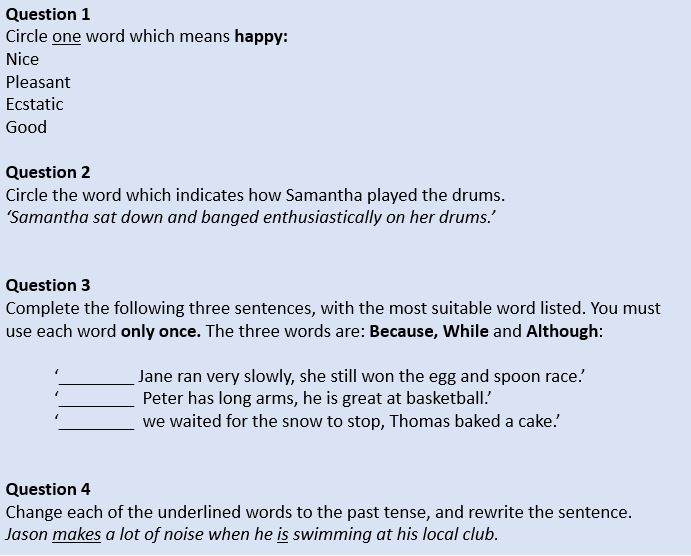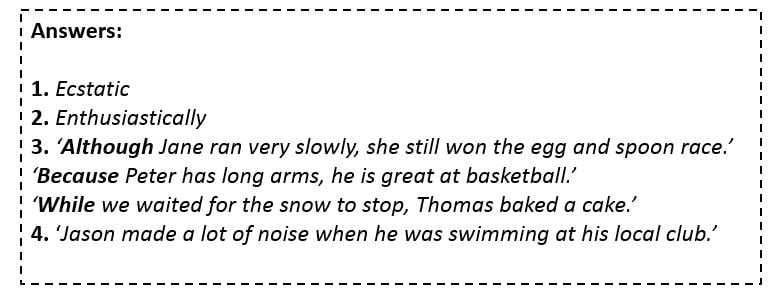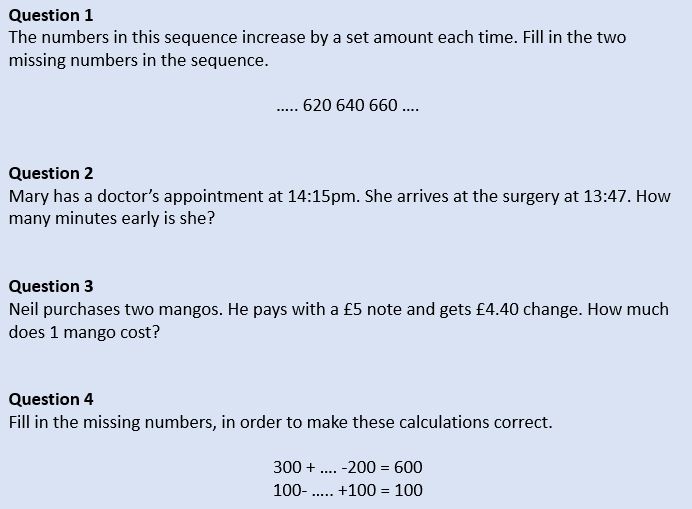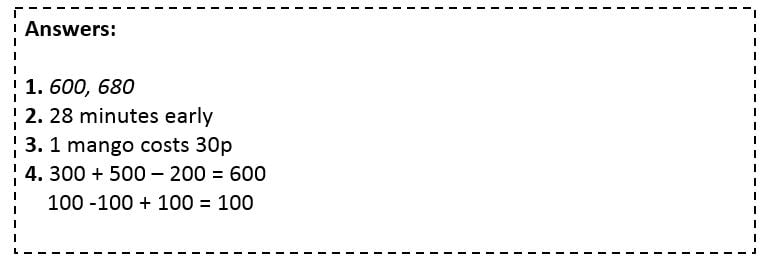All state primary school children are examined at the end of Key Stage 1, and Key Stage 2. This is done via a Standard Assessment Test (SAT). The SAT examinations help to identify a student’s key academic strengths and weaknesses, and help local authorities and the government to determine which schools are struggling or doing well. In some cases, secondary schools will base year 7 set information on year 6 SAT scores. Children are tested on what they have learned over the course of their school years; and the examinations cover topics such as reading, maths, punctuation and grammar. This is the most comprehensive parents guide to year 6 SATS.
The year 6 SAT examinations can be a highly stressful time for both parents and children. As a parent, it is important to realise that these tes ts do not involve a pass or fail, they are just a way of determining how well your child has understood the information they’ve learned at primary school. The more relaxed both you and your child are, the better they will perform.
ts do not involve a pass or fail, they are just a way of determining how well your child has understood the information they’ve learned at primary school. The more relaxed both you and your child are, the better they will perform.
In this blog, we’ll provide you with some key dates and information on the current (2015) SATS, which are being taken this week; and give you some information on next year’s updated format. We’ll also provide you with practice questions and key revision tips, to help your child maximise their performance in these exams. This is the ultimate parents guide to year 6 SATS.
Key Stage 2 Examinations 2015
The current Key Stage 2 SAT examinations are being taken this week. Below we have listed the testing order. If your child is ill or unable to sit an exam, they will be able to sit the test within 1 week after the original date.

Science Testing
- While there are no official science SAT tests, every two years the government will choose five children from every school, at random, to take a science test. This is known as science sampling. Schools are legally obliged to take part if chosen.
Teaching Assessment
- Along with the standardised tests, students will also undergo ‘teacher assessments’.

- These are assessments made by the pupil’s teacher, rather than a formal written test. Tests such as speaking and listening are the most commonly assessed by teachers, and the results of these can sometimes be passed onto the child’s next school, in order to further aid their educational development.
- In the event that there is a clash between your child’s SAT results and the teacher’s assessment of the child, then it is the teacher assessment that will take precedence.
Results
You should receive your child’s results in July 2015. At the end of year 6, the minimum expected mark is a level 4, with a level 5 exceeding expectations and a level 3 being below them. Particularly gifted students have the option of taking level 6 papers. Always remember that what matters is that your child did their best. For some students, a level 3 can still be a fantastic accomplishment.
Key Stage 2 SAT Examinations 2016
As of the summer term of 2016, there will be significant changes to the SAT papers. The tests will reflect the new national curriculum, and are expected to be more difficult. The mark scheme is also set to change drastically.
The 2016 Key Stage 2 SAT exams will test students in Reading, Maths, Punctuation, Spelling and Grammar. Below we have laid out the typical format for each of these examinations.
Reading
The reading test will consist of a single paper, with one 800 word passage and two 300 word passages. Your child will be given 1 hour to complete the exam. The questions will include the following:
will include the following:
- Responses: In this section, students will be required to demonstrate their understanding of literary techniques and comprehension. For example, they might be asked to provide a short, basic response based on information found in the passage, ‘Where does the man live?’ or they might be asked more difficult questions such as, ‘How does the writer portray a sombre attitude?’
- Ranking: In this section, students will be given a list of events and will be required to re-arrange them according to the order in which they occurred in the passage.
- Identification: In this section, students will be asked to identify certain words that demonstrate how the writer feels about or portrays events in the passage. For example, you might be asked to identify one word that describes the weather.
Spelling, Punctuation and Grammar
This examination will consist of two papers: an oral spelling test consisting of 20 words, and a grammar and punctuation paper. The latter paper will take 45 minutes to complete, and involves the following type of questions:
- Identification: In this section, students will be required to identify grammatical devices such as adjectives, pronouns, verbs and adverbs.
- Responses: In this section, students will be tested on their understanding of punctuation, and their ability to utilise this knowledge in constructing fluent sentences. For example, your child might be asked to complete or rewrite a particular sentence, or they might be asked to identify what is missing from certain sentences; and then asked why what is missing is important.
Maths
The mathematical examination will consist of three papers. Paper 1 will test the student’s arithmetic, whereas paper 2 and 3 will test their general mathematical ability, problem solving skills and mathematical reasoning.
- Paper 1: This test will consist of a series of fixed responses to arithmetic based questions, such as long multiplication and division. It will be 30 minutes long.
- Paper 2 & 3: These tests will consist of a wider variety of questions, including multiple choice, mathematical explanations and reasoning, tables, charts and true or false based questions. Each paper will be 40 minutes long.
Grammar, Punctuation and Spelling


Mathematics


Top Revision Tips
In order to ensure that your child performs to the best of their ability during the SAT examinations, you can use our top revision tips:
- Purchase past practice papers. Although the curriculum will be changing in 2016, practice papers are still a fantastic way for you to gain an idea of how your child is likely to be tested.
- Create a revision schedule. This will help you to stay organised and disciplined, and allow your child maximum use of their time in the build up to the tests. If you stick with a structured plan, you will be able to recognise what topics you have already covered, and what topics you still need to cover.

- Allow plenty of breaks. It’s really important not to overwork your child, particularly for tests such as the SAT which are not marked on a pass or fail basis.
- Stay positive. The most important piece of preparation advice we can give you is to make sure that your child is positive and relaxed about these tests. While the SAT scores are often a good reflection on how much your child has learned at primary school, a low score is by no means future defining. Don’t let it worry you, and certainly don’t let it worry your child.


